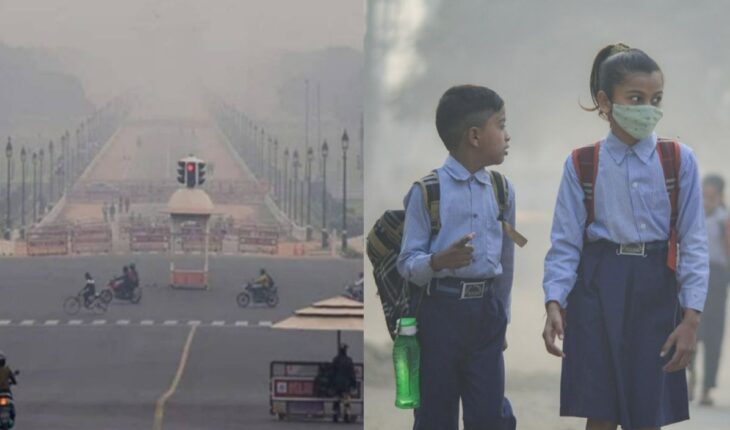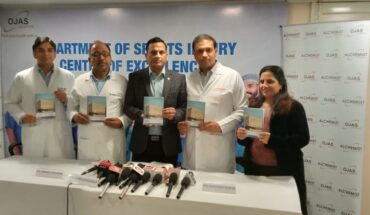Rohtak: The entire North is in the grip of severe smog leaving an ill effect on the health of youngsters, old people, newborns and unborn children in the womb causing suffocation, heart attack and brain stroke. The level of pollution in North India has become dangerous, having a very bad effect on people’s health. Experts of Rohtak’s PGIMS say that due to smog, the pollution particles present in the air are getting mixed in the blood, due to which people’s memory is decreasing and through women, poisonous air is also reaching the fetus growing in the womb as such not only the children are at greater risk from air pollution in Haryana and Delhi, smog is most dangerous for pregnant women also. While talking to media persons expressing concern Dr. Dhruv Chaudhary, Dean Academic Affairs of PGIMS Rohtak said that the danger is increasing due to the presence of pollution particles in the blood and around 130 cases related to lungs are coming every day in OPD at the hospital. He said there is a 35 percent increase in respiratory patients.
Dr Chaudhary said that because of smog, the pollution particles present in the air are getting mixed in the blood. People from young to old are losing their memory. The poisonous air is also reaching the foetus in the womb through women. He said the number of patients suffering from respiratory and brain related problems due to smog is the highest, as such many times new born children have to be kept on oxygen for two to three days after birth, the cases of premature delivery are also increasing, at the same time, the OPD of patients affected by smog has reached eight thousand at present.
According to Dr Chaudhary, patients with high blood pressure are at risk of brain stroke (paralysis) and asthma patients are at risk of heart attack. The poisonous mixture of smog reaches the eyes and lungs through breathing. The most poisonous gas in smog is sulphur dioxide as well as carbon monoxide in high quantities which directly enters the body through breathing, which mixes with the blood and starts expelling oxygen and takes in carbon dioxide. This causes a lack of oxygen in the body and then it directly affects the brain, increasing the risk of brain hemorrhage and heart attack. He said, if the brain does not get oxygen for even a few moments, the person can go into a coma. There is also a risk of losing memory and cases of memory loss are coming to PGIMS.
According to Dr. Garima Narwal, Chest and TB Specialist of PGI, the highest number of respiratory patients coming to the Emergency, has reached from 60 to 130. This includes most people above 50 years of age. Dr Garima said, “If the treatment is not done on time, the risk of infection increases. On an average, a person’s brain needs about 49 milliliters of oxygen per minute, which is about 20 percent of the total oxygen of the body, whereas the brain contains only two percent of the body’s weight. Glucose is needed to power neurons in the brain, without oxygen, brain cells cannot metabolize glucose. Due to lack of oxygen in the brain, brain cells do not get energy and brain cells gradually start dying, causing headache, fatigue, dizziness, weakening memory and can also cause changes in DNA which is very dangerous for pregnant women and children due to lack of oxygen to the brain.”






